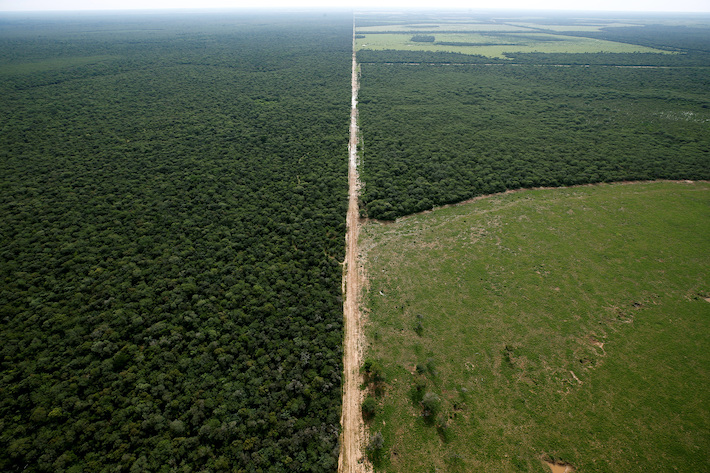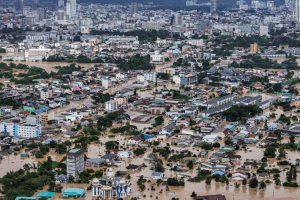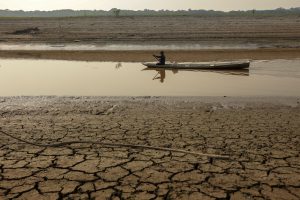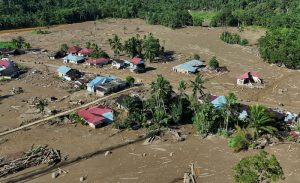Some of the world’s biggest non-government groups have condemned the European Commission’s offer this week to delay enforcement of its long-awaited forest protection mechanism.
On Wednesday European Commission president Ursula von der Leyen offered to delay the EU Deforestation Regulation (EUDR) for 12 to 18 months on products that degrade forests, after countries in Asia and other regions lobbied for the rule to be postponed, saying it would damage trade and hurt small farmers.
However, Greenpeace, Human Rights Watch, WWF and even the European environment commissioner who drafted the legislation, slammed the backdown by Von der Leyen, who is just about to start a second five-year term. Critics say it has diminished the achievements of her first term in office and cast a shadow on her climate commitments.
ALSO SEE: China Overseas Green Investment Surges in Bid to Dodge Tariffs
Greenpeace said the EC President’s decision meant another 10 million hectares of forest – an area about the size of Portugal – could be destroyed before the EU law was enforced at the end of 2025, as that was how much forest is being cut down around the world each year.

“Ursula von der Leyen might as well have wielded the chainsaw herself. People in Europe don’t want deforestation products on their supermarket shelves but that’s what this delay will give them, for another 12 months,” Greenpeace’s EU forest policy director Sébastien Risso said.
Human Rights Watch was so upset at the decision it immediately began lobbying to try to prevent the decision being endorsed.
“The need for the EUDR is as pressing as ever for the world’s forests and those on the front lines of deforestation. The European Parliament and Council should oppose the delay and remind Ursula von der Leyen of the urgency of enforcing this landmark environmental law,” Richard Pearshouse, its director of environment and human rights said.
‘A step back in climate change fight’
Virginijus Sinkevičius, a Lithuanian member of the European Parliament, who was its environment commissioner till the middle of July, said delaying the deforestation rule, which was agreed on last year, would be “a step backward in the fight against climate change.”
He told The Guardian the world was losing about 80,000 acres of forest every day and that van der Leyen’s decision would damage the EU’s credibility in terms of its commitment to fighting climate change.
Global Witness said the decision was a “grave disservice to indigenous people and local communities who are already risking their lives to protect climate-critical forests. Businesses are pushing back because this law finally takes a stand against deforestation and those willing to clear priceless ecosystems to turn a profit.”
Spokespeople for WWF and the campaign group Fern were also critical of the decision, saying that countries and companies had known about the regulatory change for years.
This week’s deferment was not a surprise, though, as the centre-right European People’s Party, which won recent EU elections, had sought a two-year delay. The decision was backed by far-right groups in Europe and others such as the National Farmers Federation in Australia.
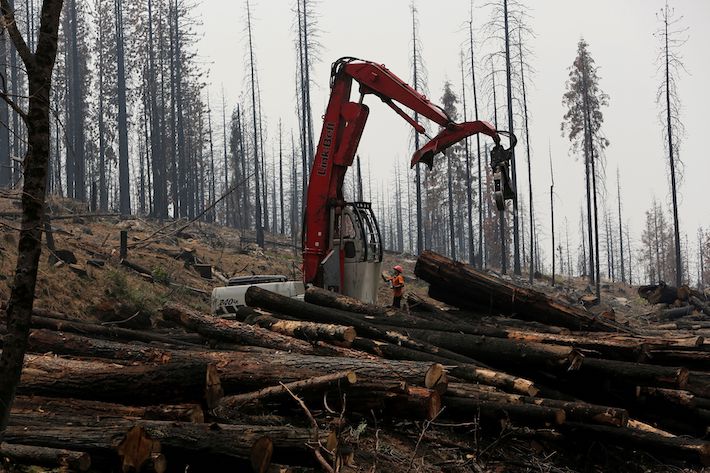
Second biggest source of carbon emissions
Reasons for the strong reactions around the world are simple: Reducing deforestation is key to countering climate change, because it is rated as the second-biggest source of carbon emissions after fossil fuels. It is estimated to cause 15% of global CO2 emissions.
The EC said it would delay the deforestation rule for large companies, due originally to start at the end of this year, until December 30, 2025, while the regulation for small companies would be set back to June 30, 2026 – if the 27 member countries and the bloc’s parliament agree.
These rules aim to preserve global forests and only allow forest-related products that are sustainable and not linked to the destruction or degradation of forests. Items potentially in the firing line include cocoa, coffee, soy, cattle, palm oil, rubber and wood.
In its announcement yesterday, the EC said “several global partners have repeatedly expressed concerns about their state of preparedness” for the rules, most recently during the United Nations General Assembly in New York.
Countries such as Brazil and Australia pushed for a delay, claiming that EU officials used the wrong data to measure forests, while Indonesia and Ivory Coast had said the new rule could punish small farmers and hit exports. In fact, over a dozen countries in Central and South America, plus Malaysia and Thailand, had previously expressed concerns about the law.
The EC noted that “the state of preparations amongst stakeholders in Europe is also uneven,” as governments in Austria and Germany had tried to water down the regulation or delay its introduction.
Legal firm Ropes & Gray said that aside from its statement, the EC also published additional guidance about the deforestation regulation.
“The guidance is divided into 11 chapters covering a diverse range of topics such as legality requirements, timeframe of application, agricultural use and clarifications on product scope,” it said.
“Among other things, the guidance addresses traceability obligations, the functionalities of the Information System and penalties and provides clarifications on definitions such as ‘forest degradation’, ‘operator’ and ‘placing on the market’.”
The EC had also provided a further 40 answers to questions frequently asked about the regulation.
- Jim Pollard
ALSO SEE:
Continued Fossil Fuel Investments Put $557 Trillion ‘At Risk’
Australian Extensions for Coal Mines Angers Pacific States
Big Tech’s Hunger For AI Power Unsettling ESG Investors
Most Effective Climate Policies Identified in New Study
Booming Solar Puts 2030 Renewable Energy Goals ‘Within Reach’
Online Misinformation Harming Climate Change Effort: UN Chief
Chinese Solar Giants’ Profits and Revenue Plunge in First Half
Big Oil All Talk And No Action on Climate Change, Report Says
Renewables Now Source of 30% of World’s Power – Guardian




